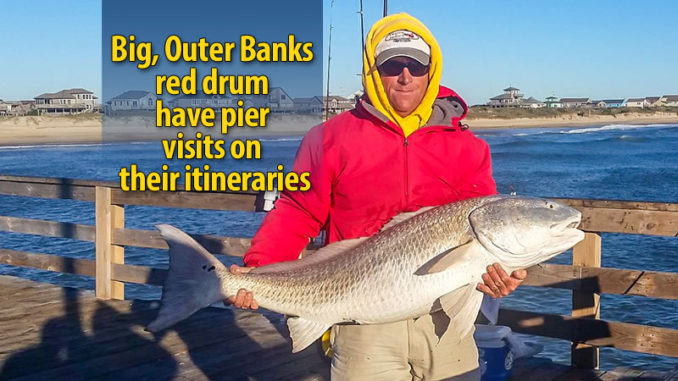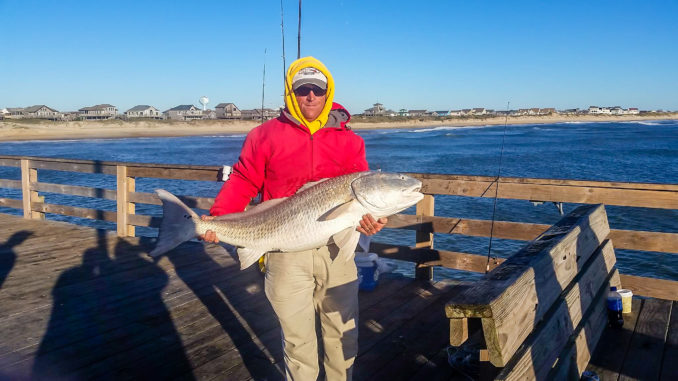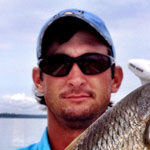
Cooling weather heats up red drum fishing for pier anglers
October is a special month for many of North Carolina’s fisheries, and none more so than the Outer Banks’ adult red drum stampede. Pier fishermen will get the first taste of reds longer than 40 inches as they follow baitfish evacuating the sounds and Virginia waters in anticipation of cold weather.
Although Frank Folb of Frank and Fran’s tackle shop in Avon said that early October will provide good catches of puppy drum, sea mullet, flounder, small bluefish and possibly a few pompano, the approaching cool weather will be what really heats things up.
“As we get further into the month, we should see good numbers of big drum,” he said, “but when they get here is all dependent on the weather. What we’re looking for is about three nor’easters starting in mid-September to pull that temperature down and pull the finger mullet and menhaden onto the beaches.”
According to Folb (252-995-4171), when the bait leaves the sounds or comes down the beaches from the north, the big drum will be right behind them. Piers from Kitty Hawk to Nags Head will be the first to encounter the Virginia migrants. Reds evacuating the Pamlico Sound via Oregon inlet on the heels of massive baitfish schools will be first met by pier fishermen in Rodanthe and Avon.
Anglers will be armed with heavy spinning or baitcasting gear spooled with of 17- to 20-pound monofilament or braid and a shock leader of 40 to 50-pound fluorocarbon. Circle hooks are optional, however, they are still widely used in sizes from 7/0 to 10/0. Cut menhaden or corncob mullet are preferred baits.

Folb reports that strong currents make the use of J-hooks in similar sizes possible with minimal gut-hooking, and these currents can require up to 8 ounces of lead on a fish-finder rig to hold bottom. The best bites usually occur when the current is picking up or slowing down.
“The last two hours of a rising tide and the first two hours of a falling tide has been the best — also, early morning and late evening,” said Folb, who has seen more than 100 big reds landed on a good day, and sometimes none on other days.”
“A lot of times, it’s the nastiest weather when they bite good,” he said, “when you’re lucky if you can get your weight to hold. When it’s rough is when the drum seem to like it.”

